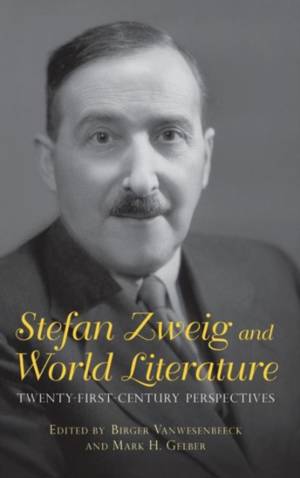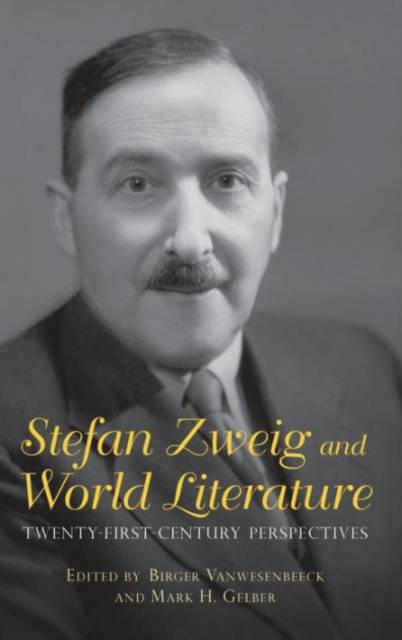
Je cadeautjes zeker op tijd in huis hebben voor de feestdagen? Kom langs in onze winkels en vind het perfecte geschenk!
- Afhalen na 1 uur in een winkel met voorraad
- Gratis thuislevering in België vanaf € 30
- Ruim aanbod met 7 miljoen producten
Je cadeautjes zeker op tijd in huis hebben voor de feestdagen? Kom langs in onze winkels en vind het perfecte geschenk!
- Afhalen na 1 uur in een winkel met voorraad
- Gratis thuislevering in België vanaf € 30
- Ruim aanbod met 7 miljoen producten
Zoeken
Stefan Zweig and World Literature
Twenty-First-Century Perspectives
€ 177,45
+ 354 punten
Omschrijving
The twenty-first century has seen a renewed surge of cultural and critical interest in the works of the Austrian-Jewish author Stefan Zweig (1881-1942), who was among the most-read and -acclaimed authors worldwide in the 1920s and 1930s but after 1945 fell into critical disfavor and relative obscurity. The resurgence in interest in Zweig and his works is attested to by, among other things, new English translations and editions of his works; a Brazilian motion picture and a best-selling French novel about his final days; and a renewed debate surrounding the literary quality of his work in the London Review of Books. This global return to Zweig calls for a critical reassessment of his legacy and works, which the current collection of essays provides by approaching them from a global perspective as opposed to the narrow European focus through which they have been traditionally approached. Together, the introduction and twelve essays engage the totality of Zweig's published and unpublished works from his drama and his fiction to his letters and his biographies, and from his literary and art criticism to his autobiography. CONTRIBUTORS: Richard V. Benson, Jeffrey B. Berlin, Darién J. Davis, Marlen Eckl, Mark H. Gelber, Robert Kelz, Klemens Renoldner, Birger Vanwesenbeeck, John Warren, Klaus Weissenberger, Robert Weldon Whalen, Geoffrey Winthrop-Young. EDITORS: Birger Vanwesenbeeck is Associate Professor of English at the State University of New York at Fredonia. Mark H. Gelber is Senior Professor of Comparative Literature and German-Jewish Studies at Ben-Gurion University of the Negev, Israel.
Specificaties
Betrokkenen
- Uitgeverij:
Inhoud
- Aantal bladzijden:
- 278
- Taal:
- Engels
- Reeks:
- Reeksnummer:
- nr. 158
Eigenschappen
- Productcode (EAN):
- 9781571139245
- Verschijningsdatum:
- 15/03/2015
- Uitvoering:
- Hardcover
- Formaat:
- Genaaid
- Afmetingen:
- 152 mm x 229 mm
- Gewicht:
- 580 g

Alleen bij Standaard Boekhandel
+ 354 punten op je klantenkaart van Standaard Boekhandel
Beoordelingen
We publiceren alleen reviews die voldoen aan de voorwaarden voor reviews. Bekijk onze voorwaarden voor reviews.








